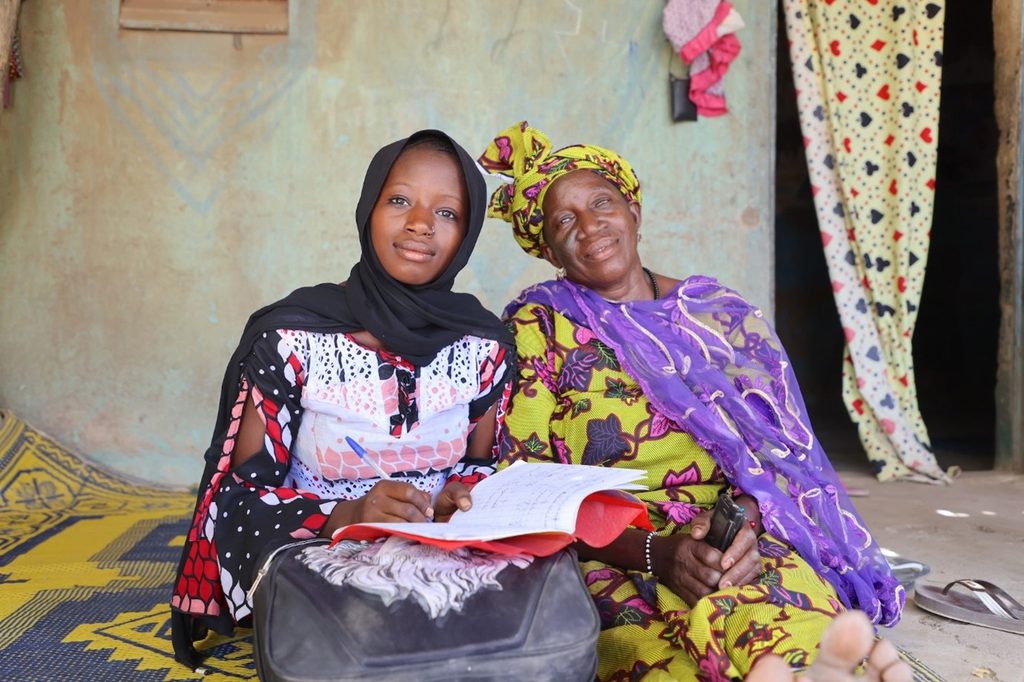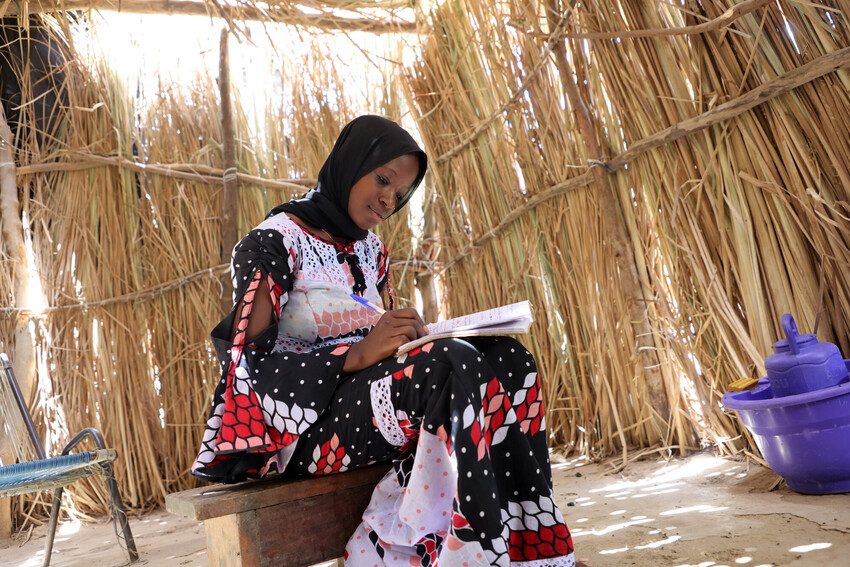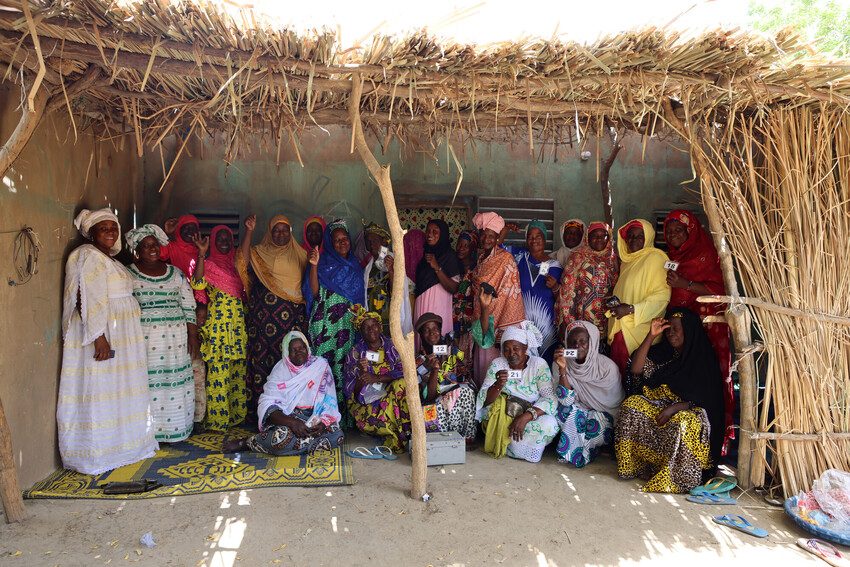Mothers protect their daughters from child marriage
In Mali, Mahawa's mother Sali used a savings group loan and set up a small business to pay for her daughter's education and protect her against the threat of child marriage.

“My mother was my last line of defence against child marriage,” says Mahawa, 17.
Child marriage is widespread in Mali, especially among the poorest communities. Mahawa lives in Mali’s Ségou region and nearly became a child bride due to financial strain. “One day, my father asked me to consider ending my studies so he could marry me off, probably due to lack of money. I categorically refused to get married for the time being, considering that I am not yet old enough.”
Staying in school
Her mother, Sali, took out a loan from a women’s savings group and used the funds to cover her education costs. These groups allow women to access credit, support their families, and invest in girls’ futures. Now, Mahawa has all she needs to stay in school – and to dream bigger.
“I used to be jealous of my friends who had more than me,” says Mahawa. “But now I have everything I need: shoes, clothes, school supplies, extra tuition. Without these things, I might have been forced into marriage.”
“Before the saving’s group, we were faced with difficulties that only we were familiar with,” explains Sali. “The arrival of this project was a lifeline for us. It has allowed us to save while offering loans to those in need. Personally, I was able to save my daughters’ schooling thanks to a loan from our association to pay for her school fees. She was even threatened with early marriage due to our financial difficulties, but this loan allowed us to support her.”

As well as paying her daughter’s school costs, Sali was able to earn money to support her family. “Thanks to the loan, my mother was also able to start a small business growing and selling onions, rice, oranges and mangoes which contributes to our family expenses,” says Mahawa.
Education helps to prevent child marriage
Mali is consistently ranked as one of the worst countries for a girl to receive an education. Girls from the poorest families are at the highest risk for school dropout. Barriers like early marriage, child labour, domestic work, violence, and gender discrimination often prevent girls from receiving the education they deserve.
When girls are not in school, they are more vulnerable to marriage. While at school, girls are often still regarded as children, not ready for marriage. The longer a girl stays in school, the less likely she is to be married off before 18 and to have children during her teenage years. And when girls are educated, they develop the knowledge, confidence and negotiation skills to assert when, whether and whom to marry.
“My mother was my last line of defence against child marriage.”
Mahawa, 17
Sali says, “We encourage all children to complete their education before getting married, as it provides them with better opportunities. As parents, we understand the importance of education for our children’s future and we want them to succeed in their studies.”
For Mahawa, her message to parents is clear. “Allow your children to continue their education and do not marry them off too early. Make sure to cover your daughters’ school fees. To girls, I advise them to get close to their mothers, to listen to them carefully, to avoid anything that could harm them and to concentrate fully on their studies.”

The programme
Mali is one of the poorest countries in the world, ranked by UNDP 186th out of 191 countries in 2021. An estimated 43.3% of the population live in poverty.
In this context, children often do not have access to their basics right to health, education, and nutrition. Girls, who are often the most impacted, are also exposed to child marriage.
Plan International’s “A Child, Not a Wife” project is being implemented in the Mali regions of Ségou and Mopti to combat the high rates of child marriage. Funded by the Norwegian NRK Telethon, the project facilitates access to sex education, vocational training for girls and inclusive education for children.
As part of the project, village savings and loan associations (VSLAs) have been set up where groups of between 15 and 25 members meet weekly to save and take out loans. VSLAs offer members the opportunity to save easily; to take out a loan for a maximum period of 3 months and access a solidarity fund which supports members in need.
Today, Plan Mali supports 158 functional VSLA groups and intends to revitalise 2,460 old VSLA groups in its programme areas and create new ones in emergency areas.
We’re standing with girls to end child marriage and build a world where equality for girls leads to progress for all.
Categories: Education, Sexual and reproductive health and rights, Skills and work


